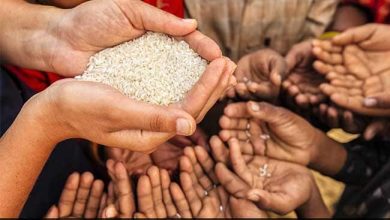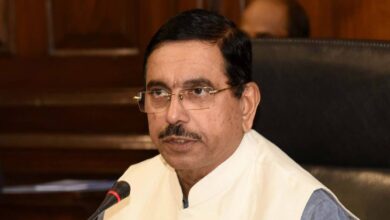I dedicate life to helping limitless sentient beings, says Dalai Lama on 88th b’day

Dharamsala, July 6: “From my side, I dedicate this very life that I have now to helping limitless sentient beings to the best of my ability,” remarked Tibetan spiritual leader the Dalai Lama who turned 88 on Thursday.
“I am determined to bring others as much benefit as I can,” His Holiness said in a message to the people around the world.
Revered by the Tibetans as a ‘living god’ and idolised in the Orient and the West, elderly Buddhist remarked: “I urge you to adopt a courageous resolve such as I, your friend, have done. My spiritual friends, please give support to my thoughts. What you have done so far was right — it was the right thing to do.”
Tens of thousands of Tibetan exiles, believers and folowers attended celebrations worldwide to mark the birthday of the leading spiritual figure who brings Buddhist teachings to the international community.
In his abode in McLeodganj, uphill this northern Indian hill town in Himachal Pradesh, large crowds began to assemble in the morning at the hilltop Tsuglagkhang temple to join the celebrations.
“Special prayer sessions are being held for the well-being and long life of the Dalai Lama,” a spokesperson for the government-in-exile told IANS.
His Holiness attended prayers and blessed his followers.
The Dalai Lama describes himself as a simple Buddhist monk. For Tibetans, he is the human manifestation of Chenrezig — the Bodhisattva of compassion.
The elderly monk, known for his simplicity and jovial style, prefers to participate in meetings with religious leaders, and lectures businessmen on ethics for the new millennium and the art of happiness.
He chuckles throughout his talk and often slaps visitors on the back.
Born on July 6, 1935, to a farming family in a small hamlet in Taktser in Amdo province in northeastern Tibet.
Earlier named Lhamo Dhondup, he was recognised as the reincarnation of the 13th Dalai Lama, Thubten Gyatso, in 1937 when he was two-years-old.
In 1959, the occupying Chinese troops suppressed the Tibetan national uprising in Lhasa and forced the Dalai Lama and over 80,000 Tibetans into exile in India and neighbouring countries.
On reaching India after a three-week-long hazardous journey, the Dalai Lama first took up residence for about a year in Mussoorie, Uttarakhand.
On March 10, 1960, just before moving to Dharamsala, which also serves as the headquarters of the exiled Tibetan establishment, the Dalai Lama said: “For those of us in exile, I said that our priority must be resettlement and the continuity of our cultural traditions. We, Tibetans, would eventually prevail in regaining freedom for Tibet.”
Buddhist monasteries and cultural institutions destroyed in occupied Tibet have been revived and rebuilt in exile.
Nearly 130,000 Tibetans in exile live in many countries around the world in both compact and scattered communities.
About 80,000 are settled in 54 different locations across India, Nepal and Bhutan.






